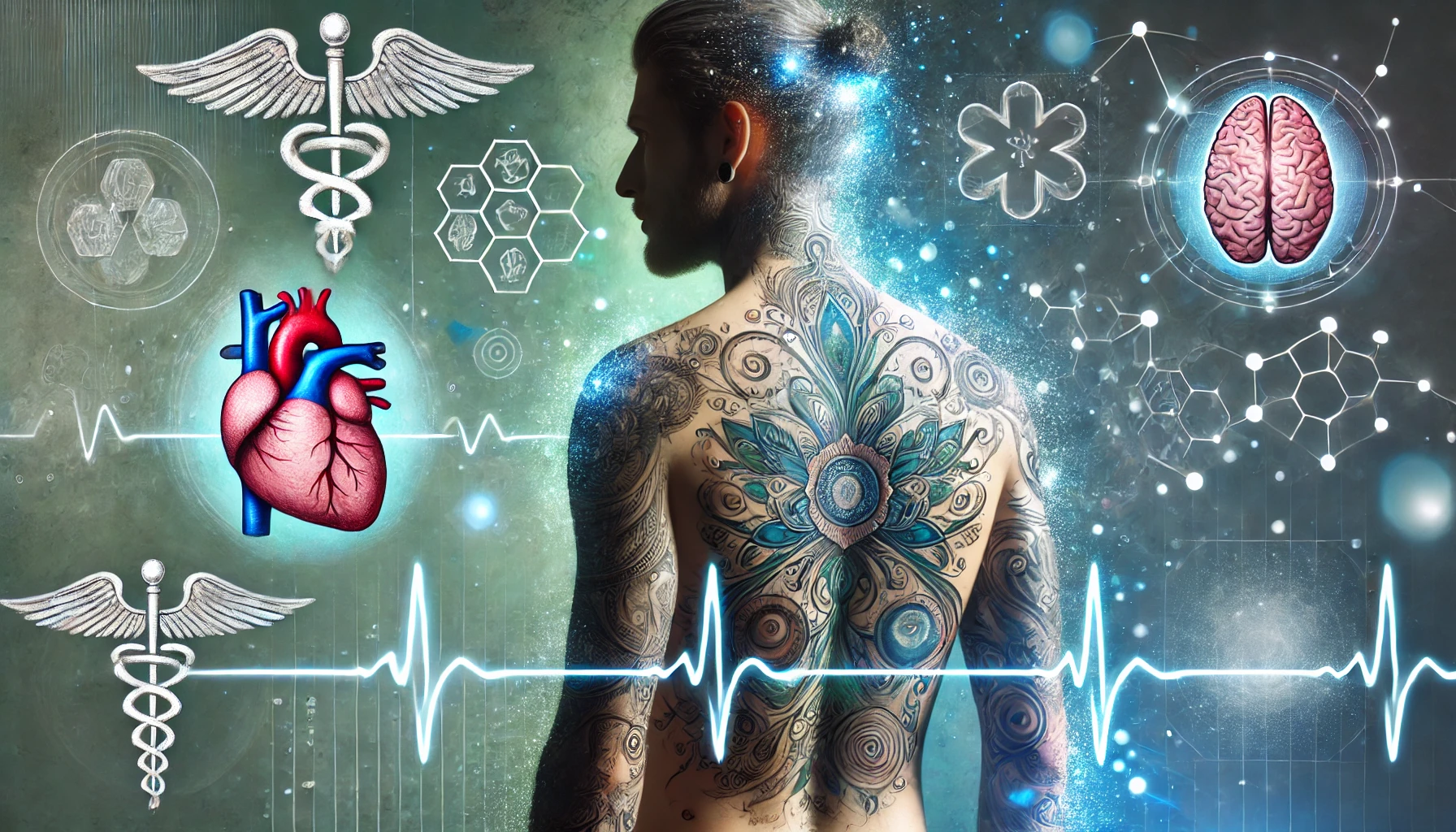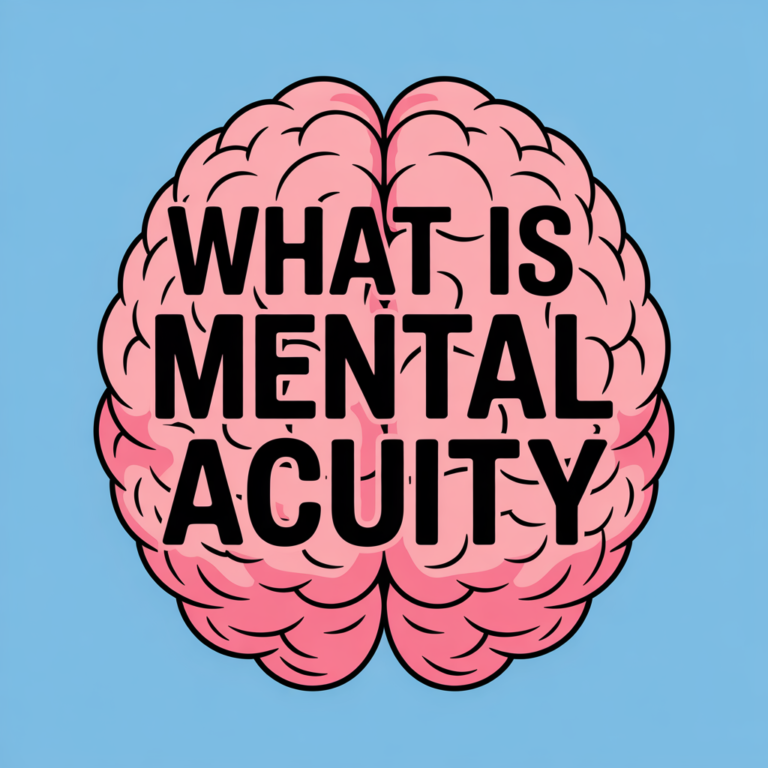Tattoos have long been part of human culture, with their significance and role evolving over time. Today, tattoos are not only a form of self-expression but also carry numerous potential health benefits, both physical and psychological. Beyond their aesthetic appeal, tattoos can offer unique advantages that might surprise you. In this comprehensive article, we will explore 15 health benefits of tattoos, backed by research and examples, to help you understand why tattoos can be more than just body art.
1. Boosts Immune System Response
One of the surprising health benefits of tattoos is their positive effect on the immune system. Research suggests that the process of getting a tattoo stimulates the immune system. Each time the body encounters the tattoo needle, it responds by sending white blood cells to the tattooed area to fight potential infections. Over time, this repeated immune response can strengthen the body’s defenses against illnesses.
A study published in the American Journal of Human Biology found that individuals with multiple tattoos experienced less of a decline in immunoglobulin A (an important antibody) after getting inked compared to those with fewer or no tattoos. This indicates that the body adapts and may even become better at handling physical stressors after multiple tattoo sessions.
2. Reduces Stress
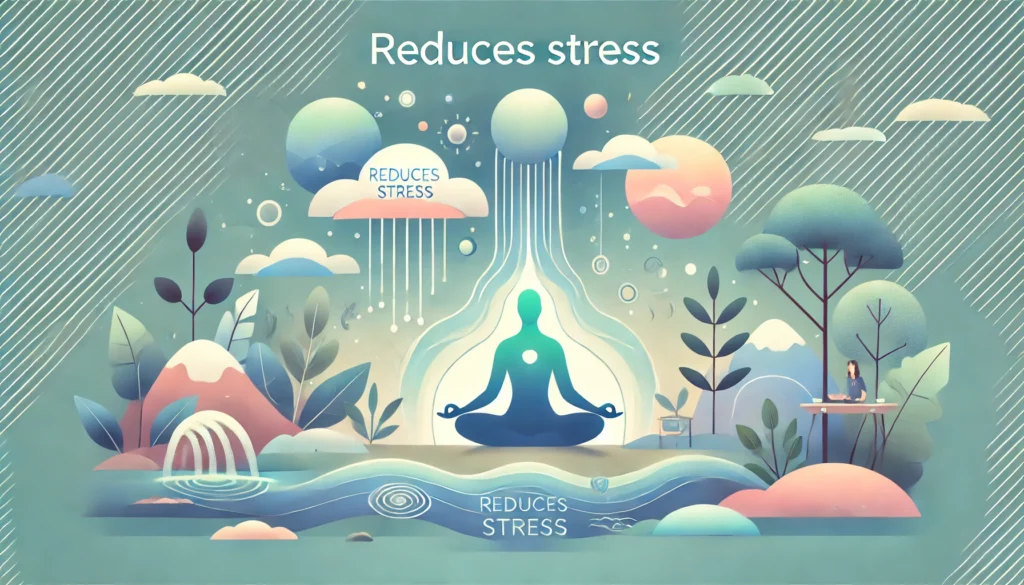
Tattoos can have a direct impact on reducing stress. When you get a tattoo, the body’s response to the pain can cause the release of endorphins, which are chemicals that help combat stress. These “feel-good” hormones can reduce anxiety and induce feelings of well-being. For some people, the tattooing process itself is a form of therapy that allows them to deal with underlying emotional issues, making it one of the mental health benefits of tattoos.
Additionally, individuals who have tattoos report feeling more confident and empowered after getting inked. This boost in self-esteem and body confidence can contribute to overall mental health and well-being, further reducing stress levels in daily life.
3. Encourages Self-Expression and Personal Empowerment
Tattoos are often deeply personal, reflecting significant life events, personal beliefs, or identity. The act of getting tattooed can be a powerful form of self-expression and a way to take ownership of your body. For many, tattoos serve as a visual narrative of their experiences, emotions, or milestones. This sense of personal empowerment can foster a stronger sense of self, which is essential for emotional well-being.
In particular, mental awareness tattoos—tattoos that are designed to raise awareness of mental health conditions or serve as a reminder of overcoming mental challenges—can be empowering. These tattoos not only serve as a form of self-expression but also as a symbol of resilience and strength.
4. Promotes Mindfulness

The process of getting a tattoo requires focus and attention to detail, both from the artist and the person receiving the tattoo. Many individuals find that the act of being tattooed brings them into a mindful state where they are present in the moment, focusing solely on their breathing, the sensations, and the experience. This mindfulness can be beneficial in managing stress, anxiety, and even chronic pain.
Moreover, tattoos can serve as permanent reminders to stay grounded. For example, tattoos featuring symbols of mindfulness, such as mandalas or words that encourage calmness and inner peace, can act as visual cues to stay centered in everyday life.
5. Increases Self-Confidence
The decision to get a tattoo often comes from a desire to improve or enhance one’s body in a meaningful way. Many people report a significant boost in self-confidence after getting tattoos, especially when the design holds personal meaning or represents something they are proud of. The physical appearance of tattoos can help individuals feel more unique and authentic, which can positively impact their self-image.
This increase in self-confidence is one of the many mental health benefits of tattoos. Feeling comfortable and empowered in your own skin can lead to improved mental health outcomes, including a reduction in anxiety and depression.
6. Helps in Healing Emotional Trauma
For some, tattoos are a way to cope with or heal from emotional trauma. Tattoos that symbolize strength, survival, or recovery can serve as permanent reminders of overcoming difficult experiences, such as the loss of a loved one, a serious illness, or a traumatic event. These tattoos can offer a sense of closure and empowerment, helping individuals to process and heal emotional wounds.
Anecdotal evidence suggests that tattoos can also provide a sense of catharsis, allowing individuals to externalize their internal struggles and reclaim their body after a traumatic experience. This aligns with the therapeutic and mental health benefits of tattoos that many individuals experience.
7. Acts as a Symbol of Identity
Tattoos often serve as a powerful symbol of identity, allowing individuals to visually communicate who they are and what they stand for. This sense of ownership over one’s identity can have positive mental health effects, particularly for individuals who have struggled with feelings of inadequacy or insecurity. Tattoos that reflect cultural, spiritual, or personal beliefs can help individuals feel more connected to themselves and their communities.
For marginalized groups, tattoos can also serve as a symbol of empowerment and pride in their heritage, experiences, or unique attributes. This contributes to a positive sense of identity and overall well-being.
8. Improves Body Image
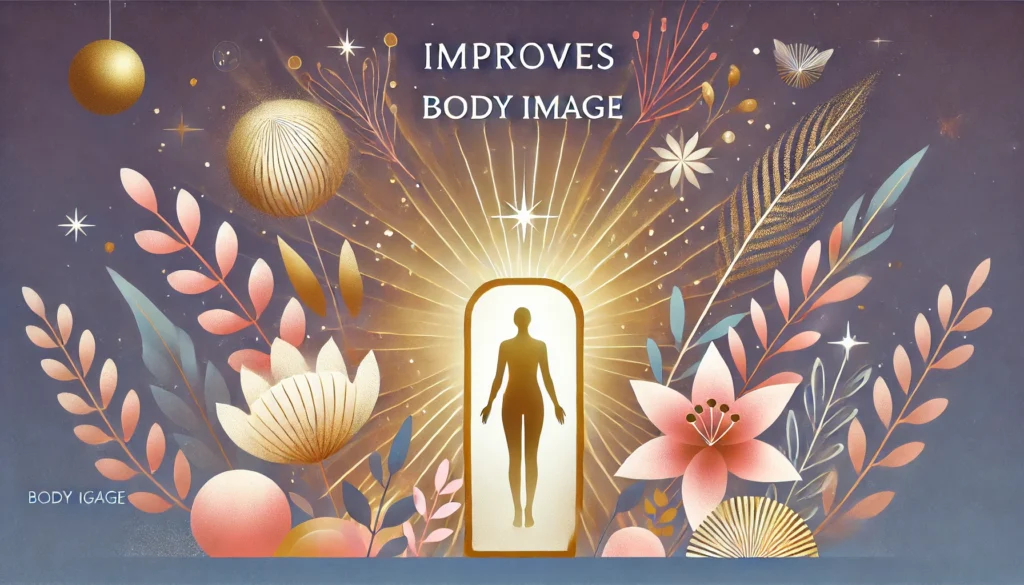
For people who struggle with body image issues, tattoos can be a form of body modification that allows them to take control of their appearance. By using tattoos to highlight or accentuate parts of their body, individuals can feel more comfortable and confident in their skin. Tattoos can also be used to cover scars or other marks that may cause discomfort or insecurity, further improving body image and self-esteem.
By transforming how individuals view their bodies, tattoos can contribute to a healthier relationship with their physical appearance, which is crucial for mental and emotional well-being.
9. Strengthens Emotional Resilience
Getting a tattoo can be a physically and emotionally intense experience. The process often involves enduring pain and discomfort, which can help individuals develop emotional resilience. The ability to sit through the pain of a tattoo and emerge with a meaningful piece of art on their body can foster a sense of accomplishment and strength.
This emotional resilience can translate into other areas of life, giving individuals the confidence to face challenges and overcome obstacles with a greater sense of mental toughness.
10. Helps Create a Support Network
Tattoos can act as a way to connect with others who share similar interests, beliefs, or experiences. Whether it’s a tattoo that represents a cause, a hobby, or a personal journey, people often find that their tattoos spark conversations and connections with others who resonate with the design or its meaning. This sense of connection and belonging can contribute to a sense of community, which is essential for mental and emotional well-being.
For individuals who have struggled with loneliness or isolation, tattoos can help them find like-minded people, fostering a support network that improves their overall quality of life.
11. Offers a Form of Personal Catharsis
For many, getting a tattoo is a deeply cathartic experience. The pain of the tattoo needle combined with the symbolic meaning behind the design can help individuals release pent-up emotions and process difficult feelings. The act of transforming emotional pain into a permanent piece of art on their body can provide a sense of release and relief, offering therapeutic benefits.
This form of catharsis is one of the mental health benefits of tattoos, allowing individuals to cope with stress, anxiety, or grief in a tangible way.
12. Acts as a Reminder of Personal Values
Tattoos are often used to symbolize important values, beliefs, or life philosophies. By having these symbols permanently etched onto their bodies, individuals create a lasting reminder of what is most important to them. These tattoos can serve as motivational tools that help individuals stay true to their principles and navigate difficult situations with clarity and purpose.
For example, a tattoo that represents strength, perseverance, or love can be a powerful reminder to stay resilient and focused during tough times.
13. Promotes Mental Health Awareness
In recent years, there has been a growing trend of people using tattoos to raise awareness about mental health issues. Mental awareness tattoos are designed to start conversations about mental health, reduce stigma, and show support for those struggling with mental health conditions. These tattoos often feature symbols like semicolons (representing the continuation of life) or phrases that promote resilience and hope.
By wearing mental health-related tattoos, individuals not only express their own experiences but also encourage others to speak openly about their mental health challenges, fostering a more supportive and understanding environment.
14. Fosters Creativity
The process of designing or selecting a tattoo is a creative endeavor. Whether working with a tattoo artist to bring a unique idea to life or choosing an existing design that resonates deeply, tattoos encourage self-expression through creativity. This creative process can stimulate the mind, leading to improved problem-solving abilities and a greater sense of fulfillment.
For many, tattoos represent a collaboration between the individual and the artist, creating a meaningful and personalized work of art. This creativity can extend beyond the tattooing process, inspiring individuals to explore other forms of artistic or creative expression.
15. Improves Overall Mental Well-Being
Finally, one of the most significant health benefits of tattoos is their impact on overall mental well-being. For individuals who struggle with mental health conditions such as depression, anxiety, or PTSD, tattoos can serve as a form of self-care and emotional healing. The act of getting a tattoo can be empowering, giving individuals a sense of control over their bodies and their experiences.
Furthermore, the sense of pride and satisfaction that comes with wearing meaningful tattoos can boost mental health by fostering a positive self-image, increasing self-esteem, and providing a sense of accomplishment.
Types of Tattoos
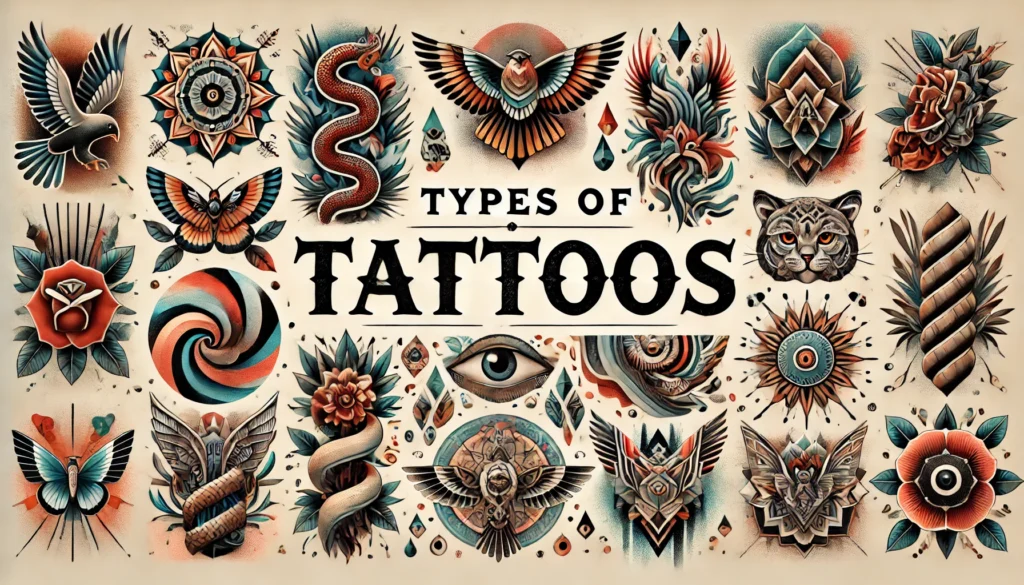
Tattoos come in many forms and styles, each with its own cultural significance, artistic technique, and personal meaning. Below are some common types of tattoos:
1. Traditional Tattoos
These are bold, vibrant designs featuring thick black outlines and solid colors. Often featuring imagery like anchors, eagles, and roses, traditional tattoos have a timeless appeal.
2. Watercolor Tattoos
Watercolor tattoos use soft brushstrokes and subtle gradients to mimic the appearance of watercolor paintings. These designs are often colorful and abstract, making them popular for those seeking artistic flair.
3. Minimalist Tattoos
Minimalist tattoos are simple and subtle, often using thin lines and minimal detail. They are perfect for individuals who prefer smaller, understated designs with deep personal meanings.
4. Realism Tattoos
Realism tattoos aim to replicate lifelike images, such as portraits, landscapes, or objects. These tattoos require highly skilled artists to create the intricate details needed for a realistic appearance.
5. Geometric Tattoos
Geometric tattoos use shapes, patterns, and lines to create intricate designs. Often symbolizing balance, order, and symmetry, these tattoos can range from simple patterns to complex structures.
6. Blackwork Tattoos
Blackwork tattoos are made entirely with black ink and often feature bold, abstract, or tribal designs. These tattoos can be very striking due to their heavy use of solid black lines and shapes.
7. Custom Tattoos
Custom tattoos are one-of-a-kind designs created specifically for the individual. These tattoos can represent anything from personal beliefs to life milestones and are often the most meaningful to the wearer.
Conclusion
Tattoos are more than just decorative body art; they offer a wide range of health benefits, from boosting the immune system to promoting mental well-being. The physical and psychological advantages of tattoos go beyond their aesthetic appeal, as they can enhance self-expression, improve body image, reduce stress, and promote mindfulness. Whether you’re considering a tattoo for its mental health benefits, its ability to foster creativity, or simply as a way to express yourself, the positive impact on both physical and mental health cannot be overstated.
Ultimately, tattoos provide a unique way to blend art, personal meaning, and health benefits into one permanent form of self-expression. So, if you’ve ever wondered if tattoos are good for you, the answer is yes—on more levels than you may have initially realized.
FAQs: Health Benefits of Tattoos
1. Do tattoos boost the immune system?
Yes, research suggests that getting multiple tattoos can strengthen the immune system by stimulating the production of white blood cells, which fight infections. Over time, this can result in a stronger immune response.
2. Can tattoos reduce stress?
Yes, the process of getting a tattoo can release endorphins, which are chemicals that reduce stress and induce feelings of well-being. Additionally, many individuals find tattoos therapeutic, helping them manage anxiety and emotional stress.
3. How do tattoos help with mental health?
Tattoos can serve as a form of emotional healing, especially for those dealing with trauma, anxiety, or depression. Mental health benefits of tattoos include improving self-esteem, providing catharsis, and offering a permanent reminder of strength and resilience.
4. Are tattoos good for people with body image issues?
Yes, tattoos can help individuals with body image issues feel more confident and comfortable in their skin. By using tattoos to highlight or cover areas of the body, many people experience improved self-esteem and body positivity.
5. Can tattoos promote mindfulness?
Yes, the act of getting a tattoo requires focus and can encourage mindfulness. The experience often helps people stay present in the moment, which can be beneficial for managing stress and anxiety.
6. Are there long-term health benefits to getting tattoos?
In addition to short-term benefits like boosting the immune system and reducing stress, tattoos can provide long-term mental health benefits by enhancing emotional resilience, improving self-expression, and fostering a positive self-image.

